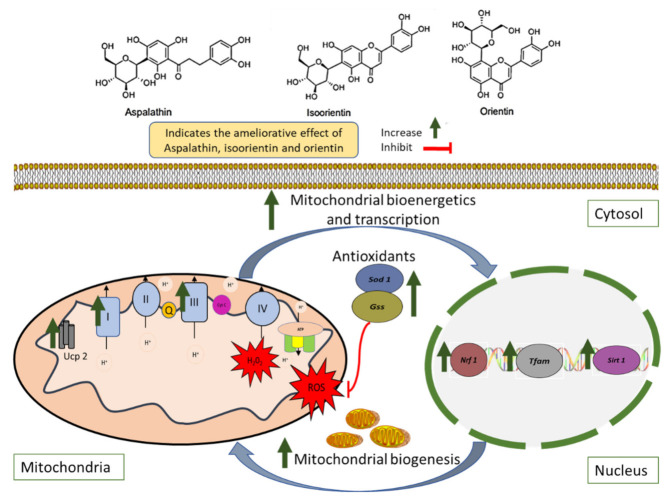Figure 6.
An overview of some therapeutic mechanisms linked with the ameliorative effect of rooibos flavonoids, aspalathin, isoorientin, and orientin against the complications involved in the development of mitochondrial dysfunction within the skeletal muscles. In brief, rooibos flavonoids aspalathin, isoorientin, and orientin showed the potential to improve mitochondrial bioenergetics through the upregulation of genes involved in electron transport complexes (Complex 1 and Complex 3) and uncoupling protein 2 (Ucp 2). In partial part, due to their antioxidant properties, these flavonoids also reduced excessive reactive oxygen species (ROS) while increasing the regulation of antioxidant genes such as superoxide dismutase 1 (Sod 1) and glutathione synthetase (Gss). Importantly, aspalathin, isoorientin, and orientin appear effective in enhancing mitochondrial biogenesis in the skeletal muscle cells; this is evidenced by the upregulation of sirtuin 1 (Sirt 1) and nuclear respiratory factor 1 (Nrf 1), leading to the activation of mitochondrial transcription factor A (Tfam) and therefore enhancing mitochondrial biogenesis.

